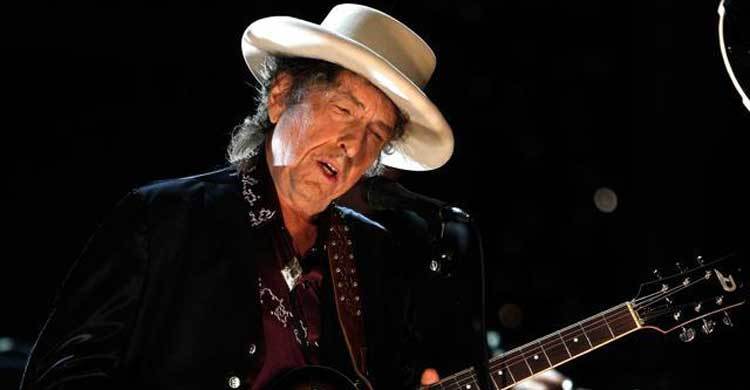‘Bob Dylan’s music signifies protests against injustice’

Bob Dylan was simple in his words, but profound in feelings. He always reminds me of the long tradition of Baul singers in Bengal who use the simplest of languages to express deep philosophy.
Bob Dylan was awarded this richly deserves the Nobel prize in Literature. Despite not being a littérateur in the usual sense, he is a songwriter imbued with poetic qualities. It is impossible for me to convey my happiness!
The Nobel recognition comes more than a century after another of my favourite songwriters, Rabindranath Tagore, was awarded the prize. Both of them have left a long-lasting influence on me.
I had the opportunity to perform with Pete Seeger, but never met Dylan in person. I cannot deny their influence in my life.
As a fellow songsmith - though of a far inferior quality - I feel elated with the recognition of Dylan’s lyrics, hindustantimes reported.
I clearly remember that way back in 1973 I first heard Dylan at a friend’s place. The song was ‘A hard rain’s gonna fall’. It came as both a shock and a surprise.
It was not a good voice, rather a ‘non-voice’. But the imagery was simple, strong, poetic and extraordinary. It gave me goosebumps.
The lyrics were not typically American, or limited to that country. It had universal appeal. His arrival coincided with upheavals around the world - from the war in Vietnam to the liberation of Bangladesh, things were rapidly changing around the world.
And he got the perfect language for those turbulent times. Dylan’s simplicity, in fact, sent me back to my folk roots.
Even now, when I think of Dylan, I’m reminded not only of human emotions and qualities but also of the pain of the people of Kashmir and the villagers of Jaduguda who live near the uranium mines.
He signifies protests against any form of injustice.To be frank, Dylan was never my guru. Amir Khan was more a guru to me than Dylan.
Stalwarts of Indian classical music had opened all my windows for appreciating and practicing music. But the quality of Bengali songs had hit a low the late sixties and early seventies.
The few songs I recorded in those days failed to satisfy me. Then, it was Dylan who inspired me to take a plunge and overcome the mental shackles enabling me to write lyrics I always wanted to.
(Kabir Suman is a gifted Bengali songwriter. His 1992 album Tomake Chai changed the course of Bengali songs.)


